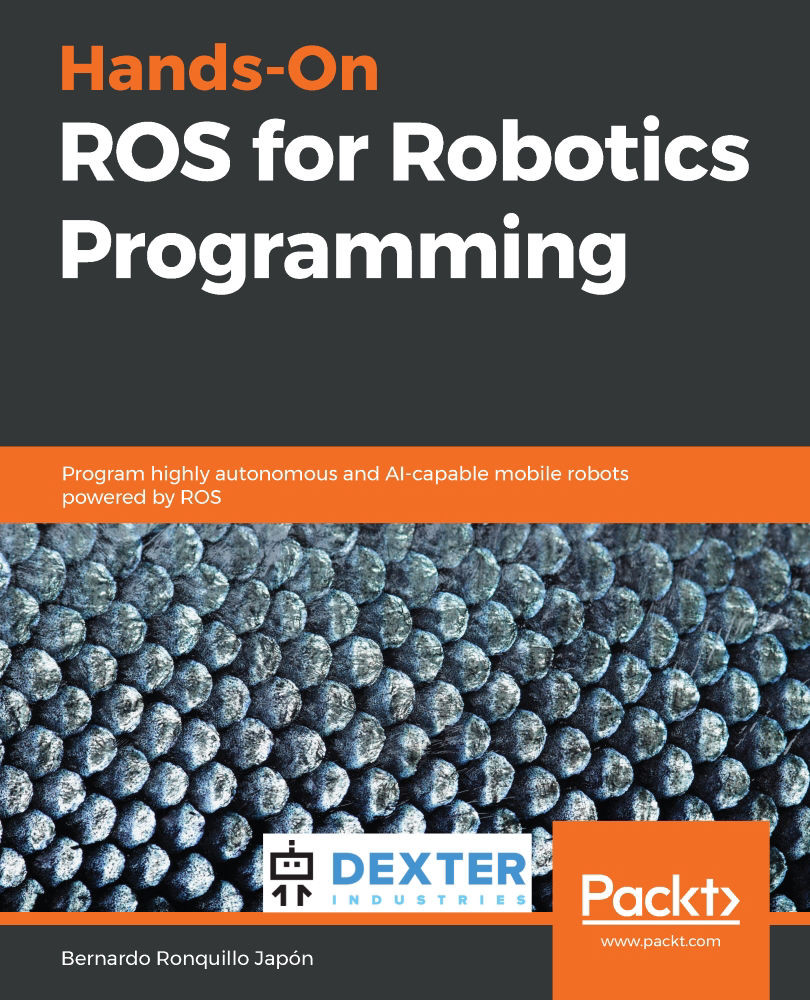Once the SDF definition has been completed in the gopigo.urdf file, you should perform some checks to ensure that the file can be read by Gazebo. To do so, navigate to the folder where the model resides:
$ roscd gazebo_basics/urdf
The roscd command is a very useful ROS command that's equivalent to the Linux cd command, but specifies the paths that are relative to a given package. It's also easier to use because all you have to do is provide the name of the package that you want to move to the Terminal. The first part, gazebo_basics, retrieves the absolute path of the package, as well as the second part of the folder or subfolder path you want to show. This ROS command, as well as other useful ones, will be covered in detail in the next chapter, under the Shell commands subsection.
Use the following two commands to print and...


































































